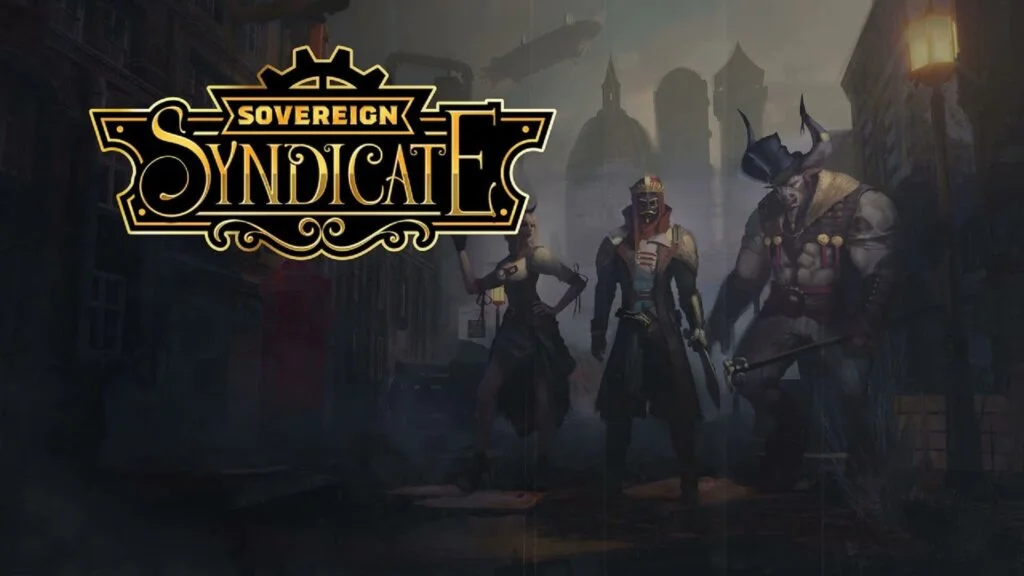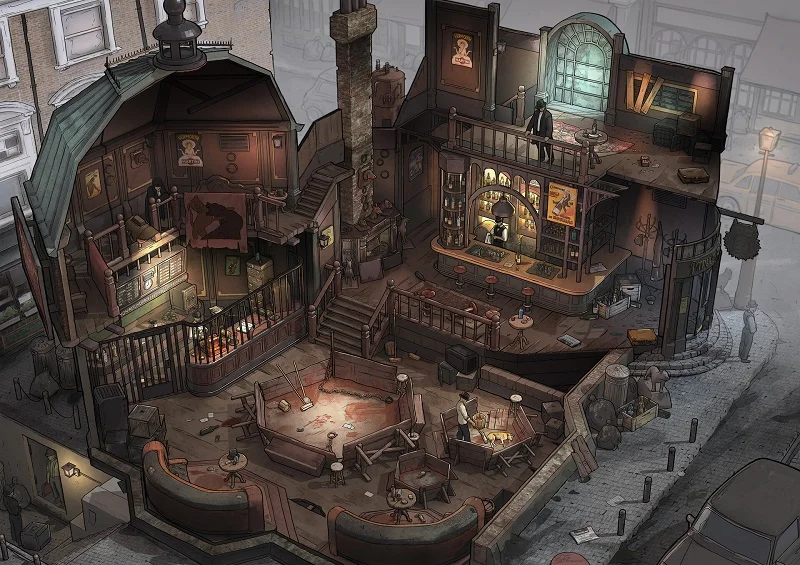Leon Green
Welcome to the blog of Leon Green

Review of Sovereign Syndicate
a game with which I better grasped the genius of Disco Elysium, but almost died of boredom
Sovereign Syndicate is a work born of great ambition... and a misunderstanding of the rules of the RPG genre. The result is a brutally linear de facto adventure with a trace of gameplay mechanics. It would have been better if this story had been published as a book.
You don't even know how little a review of Sovereign Syndicate would have been at all. As a fan of Disco Elysium, I took to this game with great enthusiasm... and lost it in a few dozen minutes. A few hours later, I wanted to throw the creation to hell. The developer led me around by the nose for more than half the game, making me click through dialogues with illusory choices and pretending that there was a plot behind the tedious running around on errands. I'm too old now for games to waste the time I have left in this carcass in such a way.
Nevertheless, I gritted my teeth and crawled to the finale. Maybe I even made it - in the last chapters, when the story gained momentum, I was even curious about where it was all going (unfortunately, I can't say that my curiosity was duly rewarded).
On the other hand, when I saw the closing credits and breathed a sigh of relief, I gave myself over to reflection. No, not about Sovereign Syndicate. I was thinking about Disco Elysium - the game that Crimson Herring studio was so clearly inspired by. I considered what makes one brilliant and the other... well, let me put it mildly: not brilliant.
The first, rather trivial element that indicates that the source of inspiration was the ZA/UM studio's work is the vertical dialog box on the right side of the screen. But that's just the beginning of the list, of course. We also have an attribute system a.k.a. skills, which also act as voices in the character's head - what we don't have are the combat mechanics. The course of action scenes, if not at all predetermined (it usually is), is influenced only by performing typically RPG-like ability tests (I would have written "throwing dice," but here tarot cards appear instead - just a cosmetic difference).
To some extent, the reality in which Sovereign Syndicate is set may also be associated with Disco Elysium. Victorian London in a steampunk setting, like the city of Revachol, is a place where surprisingly advanced, somewhat exotic technology collides with down-to-earth human dramas, mental "backwardness" and the dirt of the street.
Interestingly, however, the Crimson Herring studio has created a world close to our reality. Although a human, dwarf, minotaur, cyclops, centaur or werewolf (and robots) coexist here, historical events coincide with those we know from textbooks (for example, Napoleon's conquests took place). The authentic social problems of the era are also on point, led by the industrial revolution and the exploitation of the poorest (not excluding children).
I will immediately point out that this is an interesting universe. I was interested to discover this 19th-century London in a distorted mirror, shown in multifaceted detail, while getting to know its inhabitants - there is no shortage of intriguing phenomena and colorful personalities, including the four playable characters. I don't want you to think that Sovereign Syndicate is a bad production in all respects before I unleash the anvil of criticism on it.
The problem of this game is mainly that... it shouldn't be a game. It would have worked better as a book. The developers handle words quite well, which translates into decently written dialogues and descriptions (be forewarned: there's a lot of text to absorb, and no non-English language versions are provided). However, this is of little use when the whole thing is tied up by an unengaging and artificially long-winded main plot, in which the player's participation is almost symbolic.
A plot on rails
This brings us to the overarching problem, which is the composition of Sovereign Syndicate. The adventure is divided into 18 chapters - a number that may seem grandiose, but think of them as chapters of a novel. In each one, we push the plot forward just a little bit as a designated character, and then jump into the shoes of another for a while - and so on alternately. Closer to the finale, there are even short, single "scenes" to be played out.
Therefore, the story unfolds completely linearly, so that fate leads the characters to top-down places, and the choices put before the player are essentially a farce. You can perform a skill test to convince the interlocutor of your reasons or break out of the oppressor - but the final result will be the same. I found this out by loading the game again and again and repeating selected sequences (some a couple of times).
I was particularly amused by a certain situation from one of the chapters with the dwarf protagonist. As part of the main plot, I received an offer to test an experimental core in my robot - of course, the plot doesn't allow the option of rejecting it - but I was to pay a £10 deposit fee for this treasure. A classic RPG ploy? Not here. I replied that I didn't have that much money, so my interlocutor... just gave me the core.

My Name
This is my blog about gaming, add it to favourites ;)